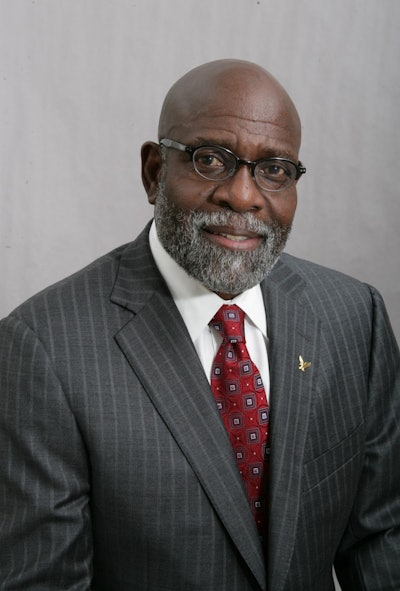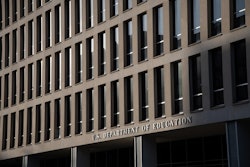Nearly six decades ago, I told my mentor, Lawrence A. Davis, Sr., also known as “Prexy,” who was then president of Arkansas AM&N College, now the University of Arkansas at Pine Bluff (UAPB), that I wanted to be president of a Black college. His response was to give me the broadest, warmest, and most reassuring smile I have ever received, followed immediately by the words: “Boy, you can do it!”
Little did I know at the time how accurate “Prexy” was in his prognostication. I would go on to receive more than a dozen presidential offers while serving as chancellor of three institutions, including America’s oldest public liberal arts HBCU, North Carolina Central University, before retiring and joining the ranks of higher education strategists, consultants, and advisors. I never accepted the presidency of the largest or most prestigious university, nor the one that paid the highest salary. Instead, I accepted the position where I felt there was the best alignment between the institution’s mission and my ability to make a substantive and sustainable difference.
When Prexy so confidently proclaimed that I could indeed become president of a Black college, I had no inkling of the academic preparation required, nor the breadth of experience that search committees and boards of trustees expect competitive candidates to possess. In subsequent conversations with Prexy and many of my other mentors, it became clear that an earned doctorate, preferably in the Arts and Sciences, was a prerequisite, along with the distinction of being a tenured faculty member. For starters, I was encouraged to leave my native state of Arkansas and head North for graduate school. After all, it was not until well into the 1970s that the University of Arkansas at Fayetteville, that state’s flagship public university, loosened its racial segregationist practices with respect to admitting Black students at both the undergraduate and graduate levels. And so, I headed north to a major research institution, Indiana University (IU), which had a widely acknowledged record in the HBCU community in the 1960s of admitting Black graduate students and treating them with respect. In fact, in later years IU would become known as the Mother of Black College Presidents.
 Dr. Charlie Nelms
Dr. Charlie NelmsThese days, hardly a week passes when I am not the recipient of multiple telephone calls from aspiring college presidents, especially from those who want to serve a Minority Serving Institution (MSI) in general, or an HBCU. The question I am most often asked is: “How do I prepare myself to successfully compete for a college presidency?” Unlike the response I received from my mentor more than half century ago, I start by asking the caller, “Why do you aspire to such a position, and what do you hope to accomplish?” Typically, what follows is a series of conversations, and a relationship which may span a few weeks, months, or even several years. To be fully transparent, some callers do not like my line of questions and never call back!
In my early conversations with potential proteges, I almost always end up giving the caller an assignment that allows me to ascertain just how committed they are in achieving their aspirations. I decided a long time ago that while one’s aspiration to serve in an executive leadership role is admirable, desire alone is not sufficient for those who wish to serve rather than simply preside.
While there is no prescribed pathway to the executive leadership ranks of the academy, one thing is clear—the possession of a terminal degree from even the most prestigious institution is not adequate. According to the online publication Inside Higher Ed, the increasing corporatization of American universities has shifted the emphasis from “ethical and intellectual leadership” to “financial savvy, political skills and fundraising experience.”
While some of these appointees have struggled to find their leadership footing, and have had short-lived presidencies, others have excelled in moving the institution forward in significant ways. According to the recent survey results from the American Council on Education, the average president is age 62, a full decade older than the average age 30 years ago. The average tenure of a college president in their current job was 6.5 years in 2016, down from seven years in 2011. It was 8.5 years in 2006. Furthermore, more than half of today’s presidents (54%) expect to step down within five years.
Recent research by Dr. Walter M. Kimbrough, an esteemed HBCU president himself, and by others, revealed that between 2010 and 2014, HBCU presidents’ tenures lasted for an average of 3.3 years, while the average tenure of presidents across all 4-year higher education institutions in the same years was 7 years.
Even though the reasons for the shorter length of presidential tenure at HBCUs are numerous and varied, now seems like an opportune time to focus on identifying and nurturing the executive ranks of the next generation of HBCU leaders, including chief officers of academic affairs, fiscal affairs, enrollment management and student success, research, and information technology, among other areas. After all, the success of a university president is inextricably linked to the collective strengths of the institution’s total leadership team and its governing board.
In the mid-1960s, when I confessed my aspirations of leading a Black college with my mentor, there existed but one nationally recognized leadership development program, the American Council on Education Fellows Program, which was founded in 1965. Seventeen years later, I would be selected as an ACE Fellow and afforded the opportunity to spend a full academic year splitting my time between the president’s office at Indiana University in Bloomington, Indiana, and Roosevelt University in Chicago. In the years since the ACE Fellows Program was founded, a plethora of higher education leadership programs of varying lengths and costs have emerged. At the end of this column is an abbreviated list of programs founded for the expressed purpose of identifying and nurturing a diverse pool of higher education leaders. While no endorsement is offered nor intended, suffice it to say that today’s aspiring university executives have numerous leadership development options from which to choose. Equally important, they can choose from programs designed and administered by accomplished leaders from all sectors of the academy, including HBCUs.
A Partial List of Higher Education Leadership Development Initiatives
- Higher Education Leadership Foundation (H.E.L.F.)
- Millennium Leadership Initiative- American Association of State Colleges and Universities (AASCU)
- Executive Leadership Summit- Hampton University
- New Leadership Academy Fellows Program- The University of Utah
- MSI Aspiring Leaders- Rutgers University Graduate School of Education
- HBCU Executive Leadership Institute- Clark Atlanta University
- Executive Leadership Institute-The League for Innovation in the Community College
- Women’s Leadership Success in Higher Education- Academic Impressions
- Harvard Graduate School of Education Programs offers a plethora of programs.
Dr. Charlie Nelms is the chancellor emeritus at North Carolina Central University.
















